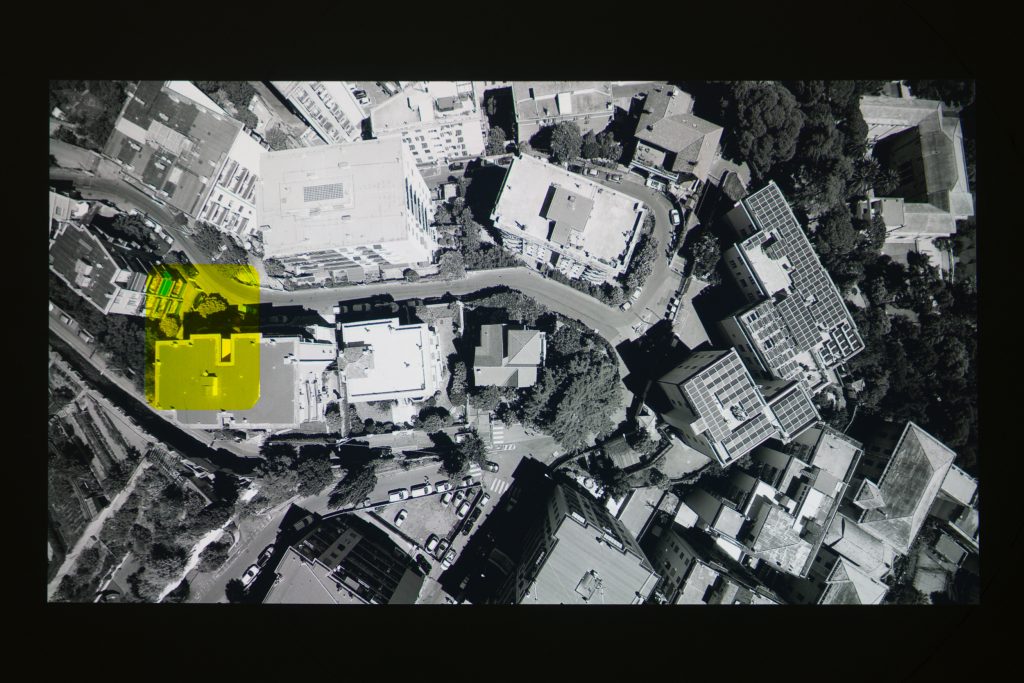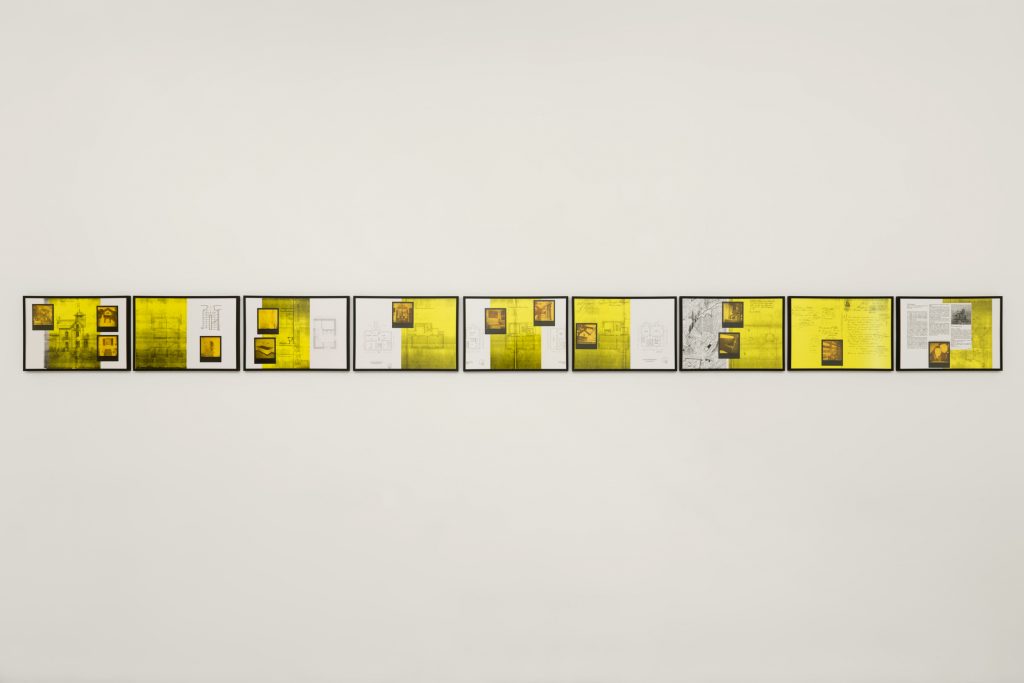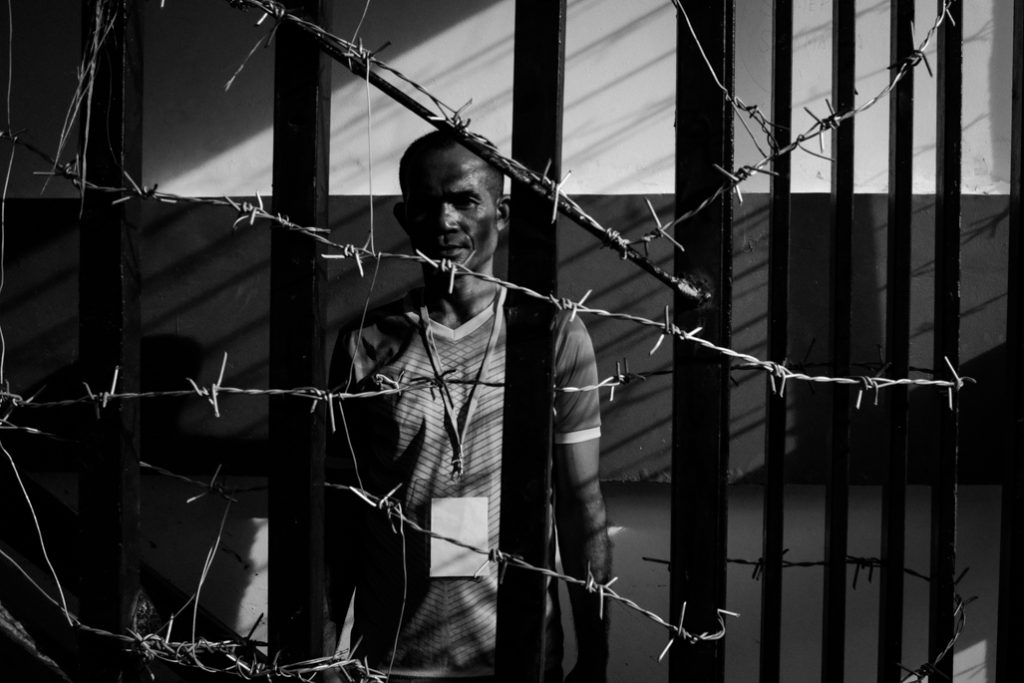In occasione della diciassettesima Giornata del Contemporaneo promossa da AMACI, il museo di Arte Contemporanea di Villa Croce presenta l’opera #IORESTOACASA dell’artista Anto. Milotta, realizzata in collaborazione con Arianna Spanò, a cura di Francesca Serrati e Michela Murialdo.
Il progetto è vincitore dell’avviso pubblico “Cantica21. Italian Contemporary Art Everywhere” – Sezione Over 35 promosso dalla Direzione Generale per la Promozione del Sistema Paese del Ministero degli Affari Esteri e della Cooperazione Internazionale e dalla Direzione Generale Creatività Contemporanea del Ministero della Cultura”.
Il titolo si ispira all’hashtag diffusosi in Italia durante il primo lockdown, imposto per prevenire la diffusione del COVID-19. Gli artisti, costretti all’interno delle proprie mura domestiche, hanno avuto modo di riordinare e analizzare l’enorme archivio di Villa Martini, la casa in cui vivono da circa cinque anni. Le memorie della famiglia Martini – che ha abitato la casa prima di loro – sono lettere, fotografie, diari, certificati e sono diventate fonte di studio e analisi del passato, trasformandosi in un progetto filmico che mette in relazione materiale d’archivio e nuove produzioni audio-visive analogiche e digitali. L’esplorazione di un secolo (1906-2006) ha permesso agli artisti di essere trasportati alla scoperta di un altro tempo e di un’altra storia familiare, senza dover evadere dagli spazi domestici della propria abitazione.
BIO: Negli ultimi anni ha partecipato a diverse mostre tra cui: Event horizon/Experiences on time and space presso Museo d’arte contemporanea Patio Herreriano di Valladolid, Spagna; Matter over matter presso Goethe-Institut di Sofia, Bulgaria; Visao expandida presso la Biennale di Curitiba, Brasile; A matter of perception presso Skanstull Metro station, Stoccolma; Monumentvm per Nesxt independent art festival presso magazzini Docks Dora, Torino; Sólo quienes sueñan pueden mover montañas presso l’Istituto italiano di Cultura di Lima, Perù; Green Observatory per gli eventi collaterali di Manifesta 12, presso Spazio Y, Palermo; Naturally Artificial presso Museo d’arte contemporanea di Villa Croce, Genova.
Anto. Milotta ha studiato nelle Accademie di Belle arti di Firenze, Palermo, Milano e Genova. Nel 2020 frequenta il Master “Movies-Moving Images Arts”, legato alle pratiche filmiche all’interno delle arti visive, presso lo IUAV di Venezia. Attualmente frequenta il Dottorato di ricerca presso l’Università di Genova (Laboratorio di Sociologia Visuale) dove pratica artistica e ricerca sociale sono utilizzati come strumenti d’indagine della realtà contemporanea. Dal 2006 lavora come artista visivo e dal 2015 è membro del collettivo Milotta/Donchev. La sua ricerca abbraccia tematiche intime e sociali, volte a scandagliare le forze invisibili che animano e determinano il presente. Le installazioni, le immagini in movimento e il suono sono tra i medium più costanti presenti all’interno della sua ricerca.
Link Teaser:https://vimeo.com/467153953 Link pagina evento museo:https://www.museidigenova.it/it/node/10908
On the occasion of the 17th Giornata del Contemporaneo, promoted by AMACI, the Villa Croce Museum of Contemporary Art presents the work #IORESTOACASA by the artist Anto Milotta, created in collaboration with Arianna Spanò, curated by Francesca Serrati and Michela Murialdo. The project is the winner of the public announcement “Cantica21. Italian Contemporary Art Everywhere” promoted by the Directorate General for the Promotion of the Country System of the Ministry of Foreign Affairs and International Cooperation, and by the Directorate – General for Contemporary Creativity of the Ministry of Culture.
The title is inspired by the hashtag that spread in Italy during the first lockdown, imposed to prevent the spread of COVID-19. The artists, forced into their own homes, were able to organize and analyze the huge archive of Villa Martini, the house in which they have lived for about five years. The memories of the Martini’s family – who lived in the house before them – are letters, photographs, diaries, certificates and have become a source of study and analysis of the past, transforming themselves into a film project that brings together archival material and new productions audio-visuals. The exploration of a century (1906-2006) has allowed artists to be transported to the discovery of another time and another history, without leaving the domestic spaces of their homes.
BIO: Anto. Milotta has studied in the Academies of fine arts in Florence, Palermo, Milan and Genoa. In 2020 he attended the master course of “Movies-Moving Images Arts” at IUAV Venice related to modern film practices in the field of visual arts. Recently he obtained a PhD at the University of Genoa (Visual Sociology Lab) that will proceed until 2023. He will combine artistic practices and social studies as methods of research upon contemporary phenomena. He has worked as a visual artist since 2006; he has been a member of the collective Milotta/Donchev since 2015. His research embrace both intimate and social thematics, trying to investigate the invisible forces that animate and determine the present. Installations, moving images and sound are the most constant media of expression in his artistic practice.
In the recent years he has participated in different exhibitions, among which: Event horizon/Experiences on time and space at Contemporary art museum Patio Herreriano in Valladolid, Spain; Matter over matter at Goethe-Institut Sofia, Bulgaria; Visao expandida at Biennale de Curitiba, Brazil; A matter of perception at Skanstull metro station in Stockholm; Monumentvm for Nesxt independent art festival at Docks Dora, Turin; Sólo quienes sueñan pueden mover montañas at the Italian cultural institute of Lima, Perù; Green Observatory, a collateral event of Manifesta 12, at Spazio Y in Palermo; Naturally Artificial at Contemporary art museum of Villa Croce, Genoa.
Link Teaser:https://vimeo.com/467153953 Link Museum Even Page:https://www.museidigenova.it/it/node/10908









